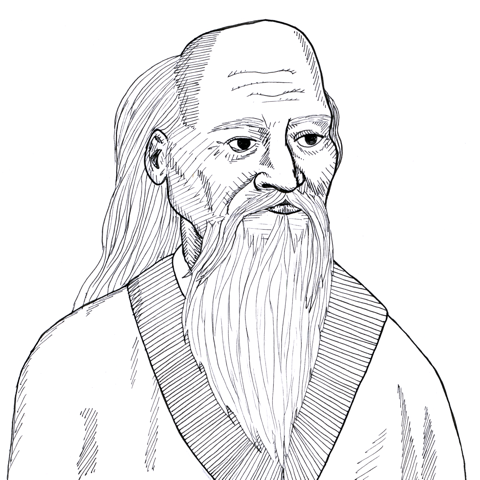
Lao Tzu and the Tao of laissez-faire (6thC BC)
Found in: The Texts of Taoism, Part I
Lao Tzu, the founder of Taoism, advises a wise ruler to follow a policy of laissez-faire, in other words “to do nothing” and thus allow the people to transform themselves:
Economics
Therefore a sage has said, ‘I will do nothing (of purpose), and the people will be transformed of themselves; I will be fond of keeping still, and the people will of themselves become correct. I will take no trouble about it, and the people will of themselves become rich; I will manifest no ambition, and the people will of themselves attain to the primitive simplicity.’